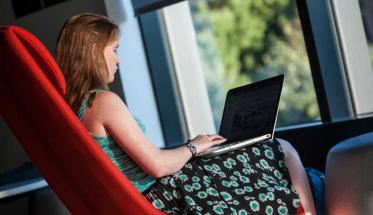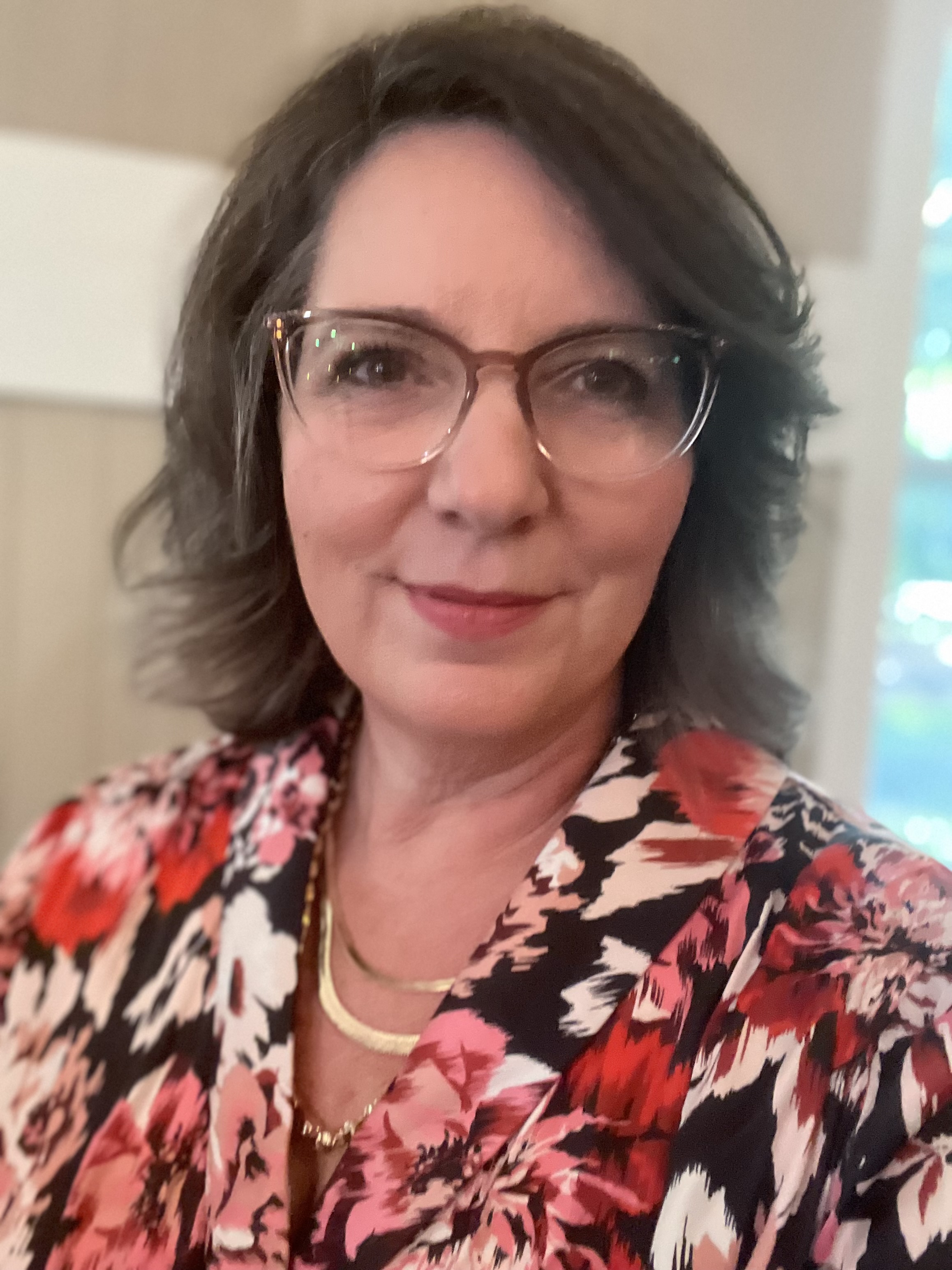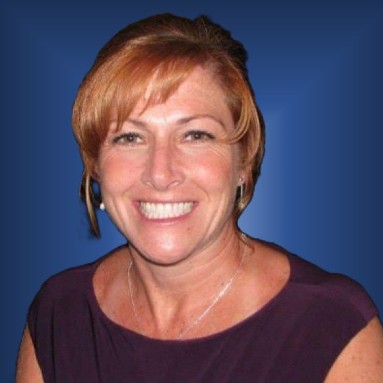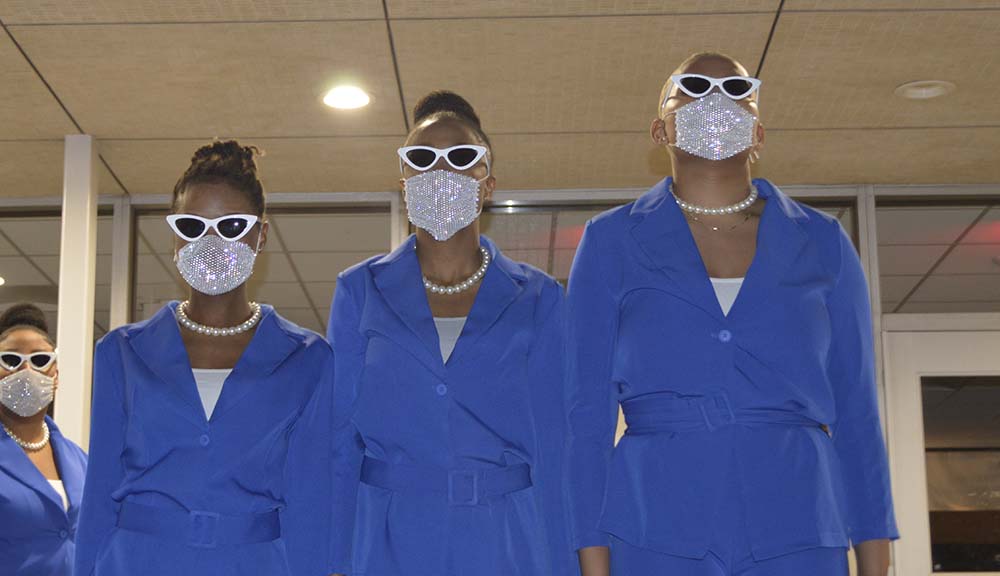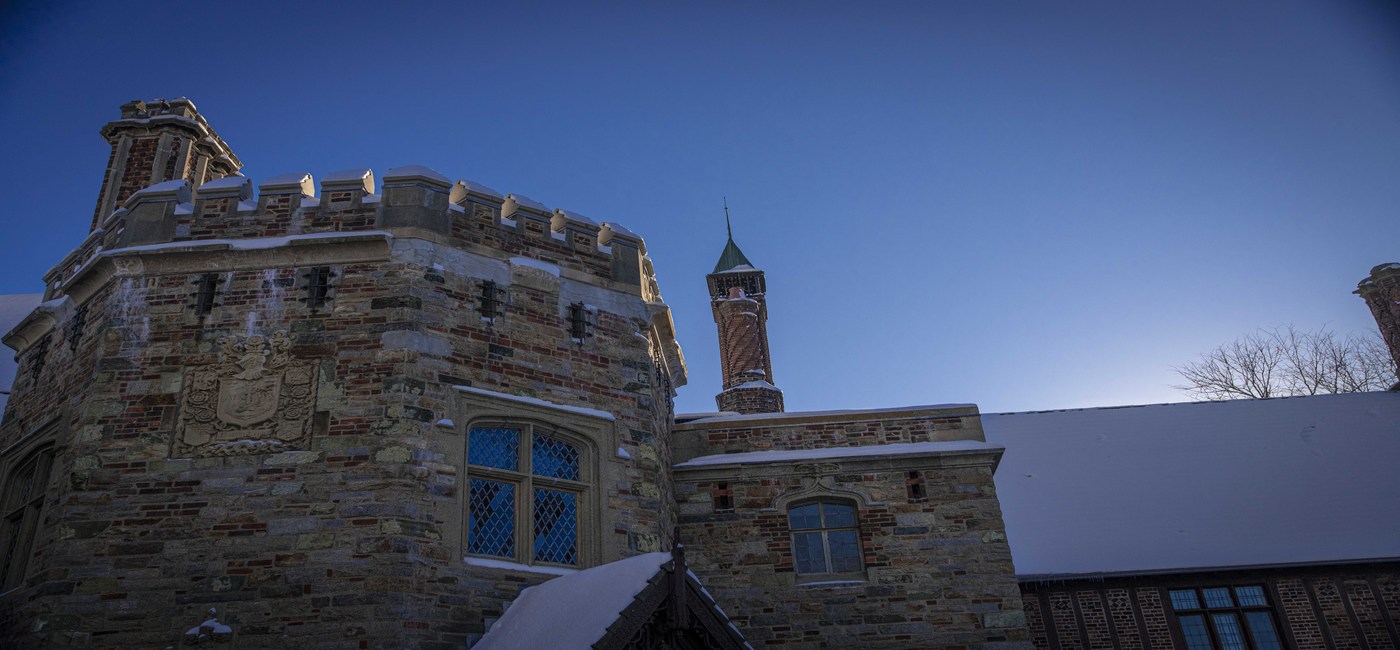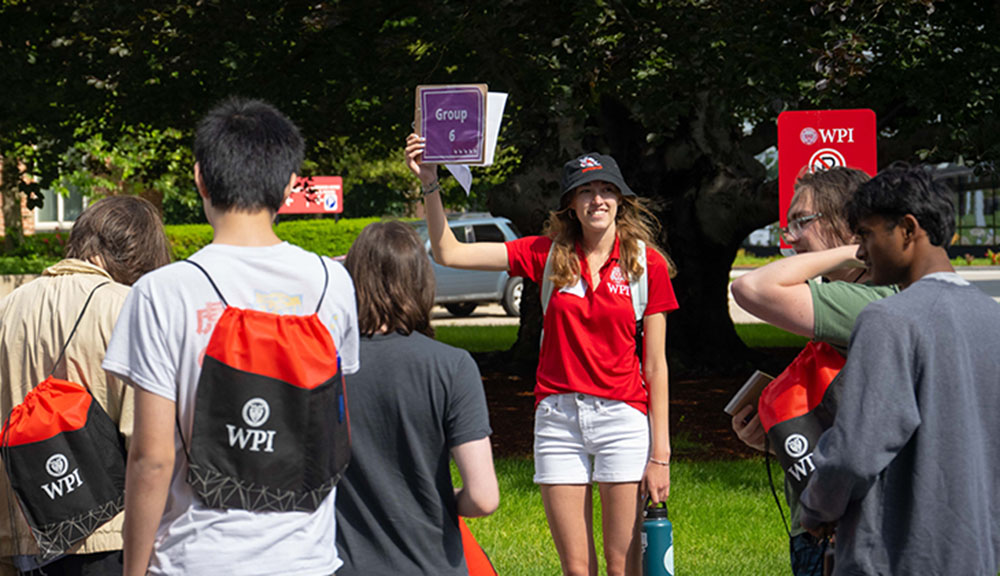An abruptly closed campus and a massive shift to remote learning, all in the midst of a global pandemic—saying that D-Term at WPI was unexpected is an understatement. Having only a few weeks to create what was essentially an online campus was uncharted territory, and while students, faculty, and staff all stepped up to the challenge, it couldn’t have been done without support that wasn’t only academic and technical, but emotional as well.
Enter the Virtual Learning team.
Made up of director of special academic programs Debra Boucher, director of expanded learning opportunities Katie Elmes, and operations manager Aprile Mero, the team adapted pieces of what Boucher had built for WPI’s preexisting undergraduate online presence through summer programs, using them to develop new, complementary initiatives grounded in student success best practices to offer support to the entire campus. The model also bears similarities to the learning style that’s been utilized successfully by WPI graduate students for years.
From an Online Student Center Canvas site and the creation of a Virtual Learning Support website (as well as a collaborative email ticketing system that offered students, parents, and faculty a place to get support and answers to questions)—to collaborations with everyone from the Student Government Association to the Academic Technology Center—they used their expertise (and that of other offices across campus) to create a collaborative, interdisciplinary hub of virtual learning support to provide students with all the help, direction, and resources they’d need for a successful (albeit very different) term.
“A good online program takes a systematic approach,” says Boucher, who joined WPI three years ago, and has since brought extensive experience in undergraduate online support to campus. “We had to make sure we were making it easy for students to get the information they need.”
Building a Successful Remote Experience
One of the most prominent sources of that information came in the form of a weekly “Just in Time Tips” newsletter, which gave students information when they needed it, as opposed to sharing everything all at once and running the risk of further overwhelming them in an already overwhelming time. The newsletter featured a variety of resources and information from week to week, ranging from Zoom drop-in support sessions, tips on creating an effective study space and schedule, and links on finding and accessing resources and a community check-in.
The community check-in is a simple but critical part of the virtual support system for students: those whose responses indicated that they could be doing better were contacted by Boucher, Elmes, or Mero—not to call them out, just to check in and see how they were doing and if there was anything WPI staff could do to help. At its core, it’s the equivalent of a message from a friend who wants nothing but to say hello and make sure everything is going okay, something that Boucher cites as essential to a successful remote experience for students wherever they are.
“Everything I believe to be true about student success boils down to ‘Someone here sees me and cares about me.’ The biggest predictor of student success is making clear to them that someone actually sees them, cares about them, knows their name. That’s what we’re doing here.” -Debra Boucher
“Everything I believe to be true about student success boils down to ‘Someone here sees me and cares about me,’” Boucher says. “The biggest predictor of student success is making clear to them that someone actually sees them, cares about them, knows their name. That’s what we’re doing here.”
The Virtual Learning team is refining their resources even further as they use all of the above and more to support students in both summer terms, which have seen record numbers of students taking undergraduate courses. The team is going from “building the plane as we were flying in D-Term,” as Boucher puts it, to building upon their D-Term structure, using the additional planning time what they learned through student feedback to create a stronger, more refined, and fully integrated approach.
How? Virtual study halls, reaching out to additional students to just check in and say hello, partnerships with faculty to ensure the wellbeing of students, short, student-led videos, and the continuation of the “Just in Time” newsletter are just the beginning—and the team is always looking for ways to make their programs and services better; Boucher encourages students to get in touch with any ideas or suggestions they may have.
As the university moves toward its second term of summer remote learning, Boucher’s advice to students is simple: Never be afraid to reach out for help or to ask questions. "I’ve been incredibly touched by the passion and commitment faculty and staff have had toward students and their success. Whether we’re in-person or online, this campus community cares.”
- By Allison Racicot
